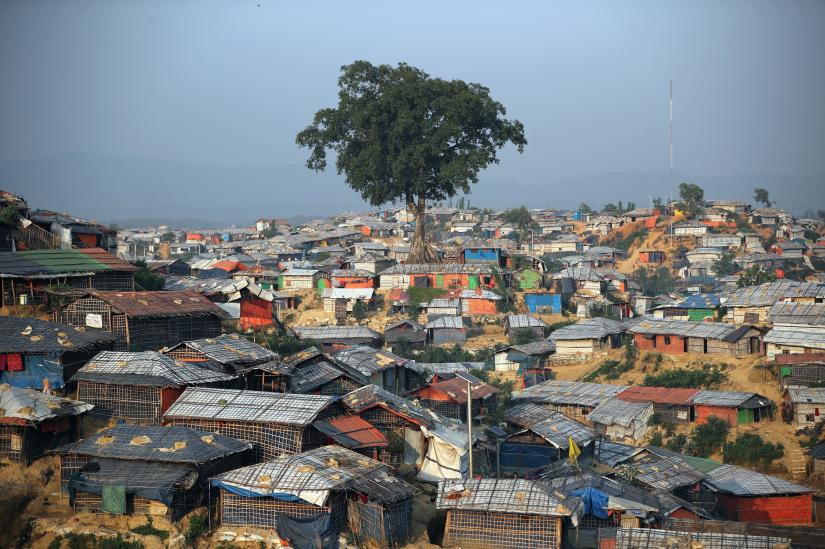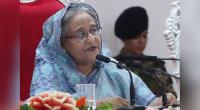 The International Criminal Court (ICC) delegation is discussing the details of the investigation it wants to launch against Myanmar over the alleged crimes against the Rohingya.
The International Criminal Court (ICC) delegation is discussing the details of the investigation it wants to launch against Myanmar over the alleged crimes against the Rohingya.
ICC Deputy Prosecutor James Stewart met with Law Minister Anisul Huq, Home Minister Asaduzzaman Khan Kamal and Foreign Secretary M Shahidul Haque on Wednesday (Jul 17).
The delegation that landed in Dhaka on Tuesday (Jul 16) will be discussing the scope and details of the probe before signing an agreement, that is a prerequisite for launch a full investigation.
The delegation is scheduled to visit the Rohingya camps at Cox’s Bazar on Thursday (Jul 17).
Earlier in March, an ICC team led by its Chief Prosecutor Fatou Bensouda travelled to Bangladesh and visited the Rohingya camps for a “preliminary investigation”.
On Jun 26, ICC Chief Prosecutor Bensouda said in a statement that she would ask judges for permission to investigate crimes that had "at least one element" in Bangladesh, which is a member of the ICC.
She added that her investigation would cover crimes that also took place "within the context of two waves of violence in Rakhine State on the territory of Myanmar.”
The war crimes court said in a separate statement it had assigned a three-judge panel to hear Bensouda's request.
If granted, the ICC would become the first international court to look into alleged atrocities against the Rohingya Muslim minority of Myanmar.
Although Myanmar is not a member of the court, the ICC in September determined it has jurisdiction over some crimes in the region when they had a cross-border nature, given that Bangladesh is a member.
"The Court has jurisdiction over the crime against humanity of deportation allegedly committed against members of the Rohingya people," it said in a September 2018 ruling.
"The reason is that an element of this crime - the crossing of a border - took place on the territory of a State party (Bangladesh)."
The following day, Myanmar's government said it rejected the court's jurisdiction.
An independent UN fact-finding mission in August concluded that Myanmar's military carried out mass killings and gang rapes of Muslim Rohingya.
With 122 members, the UN-backed ICC is a court of last resort, only stepping in when member countries are found to be unwilling or unable to prosecute war crimes on their territory -- or when a case is referred to it by the Security Council.
That occurs only rarely as the United States, Russia and China are not ICC members, and can use their veto powers to prevent a referral, as Russia has done with Syria.
 National
National
41359 hour(s) 24 minute(s) ago ;
Morning 02:18 ; Sunday ; Jul 06, 2025
Crimes against RohingyaICC team discusses probe details with Bangladesh
Send
Bangla Tribune Report
Published : 21:46, Jul 17, 2019 | Updated : 21:48, Jul 17, 2019
Published : 21:46, Jul 17, 2019 | Updated : 21:48, Jul 17, 2019
0 ...0 ...
/ssz/st/
Topics: Top Stories
- KOICA donates medical supplies to BSMMU
- 5 more flights to take back British nationals to London
- Covid19: Rajarbagh, Mohammadpur worst affected
- Momen joins UN solidarity song over COVID-19 combat
- Covid-19: OIC to hold special meeting
- WFP begins food distribution in Cox’s Bazar
- WFP begins food distribution in Cox’s Bazar
- 290 return home to Australia
- Third charter flight for US citizens to return home
- Dhaka proposes to postpone D8 Summit
Unauthorized use of news, image, information, etc published by Bangla Tribune is punishable by copyright law. Appropriate legal steps will be taken by the management against any person or body that infringes those laws.
Bangla Tribune is one of the most revered online newspapers in Bangladesh, due to its reputation of neutral coverage and incisive analysis.
F R Tower, 8/C Panthapath, Shukrabad, Dhaka-1207 | Phone: 58151324; 58151326, Fax: 58151329 | Mob: 01730794527, 01730794528


